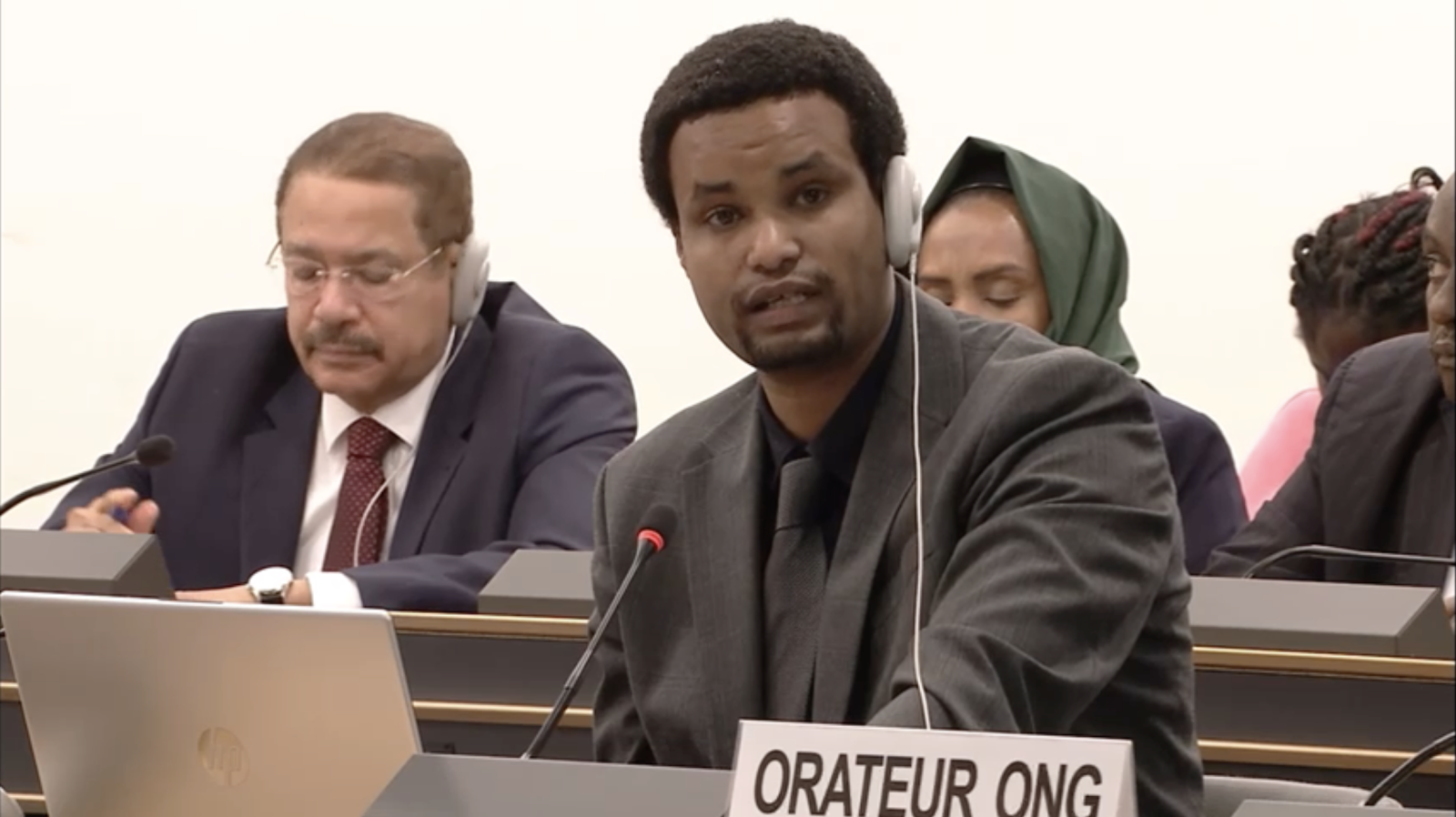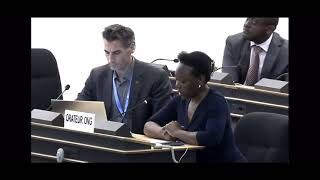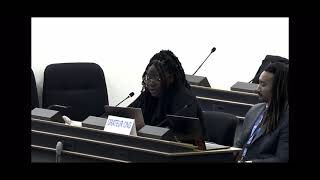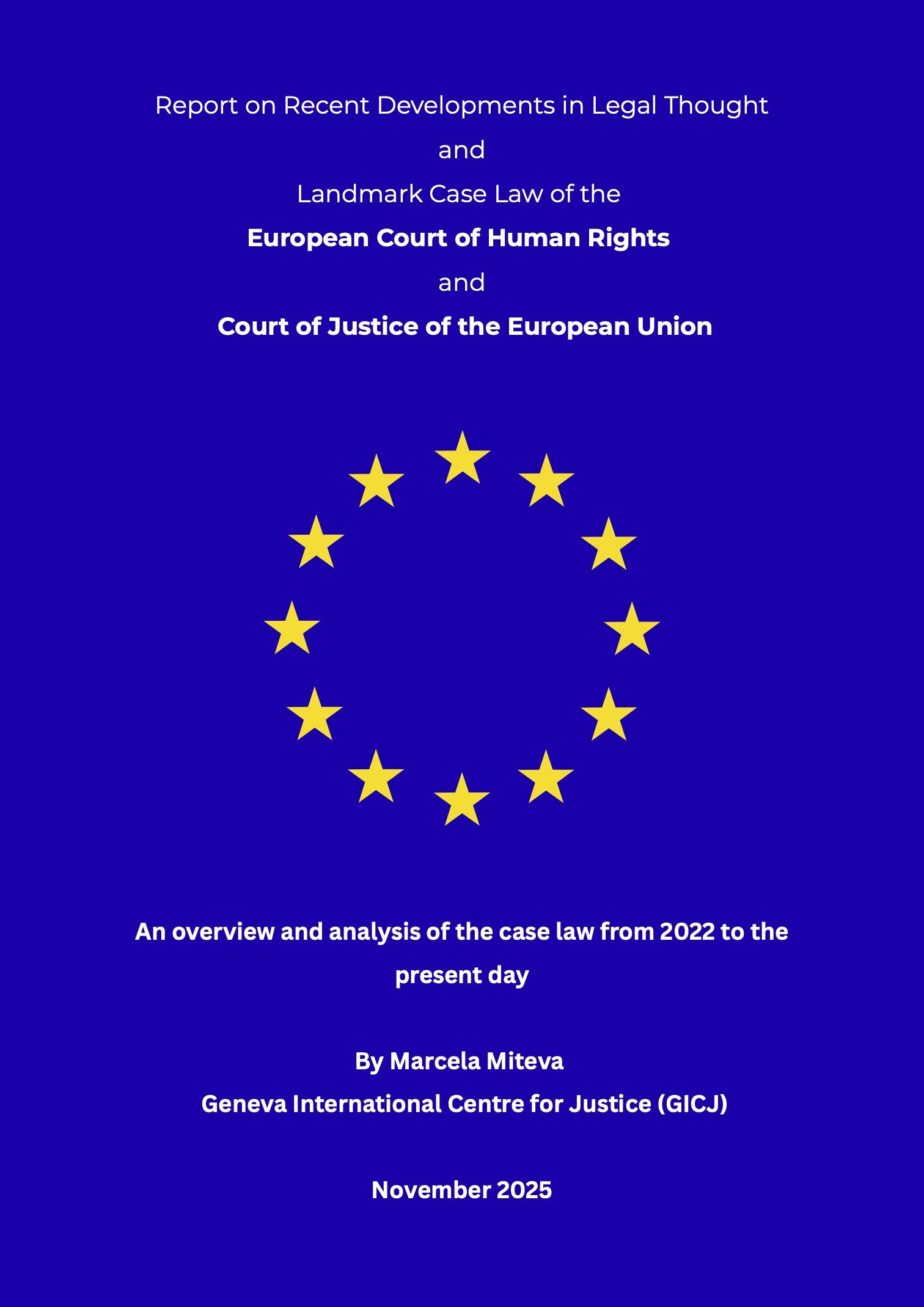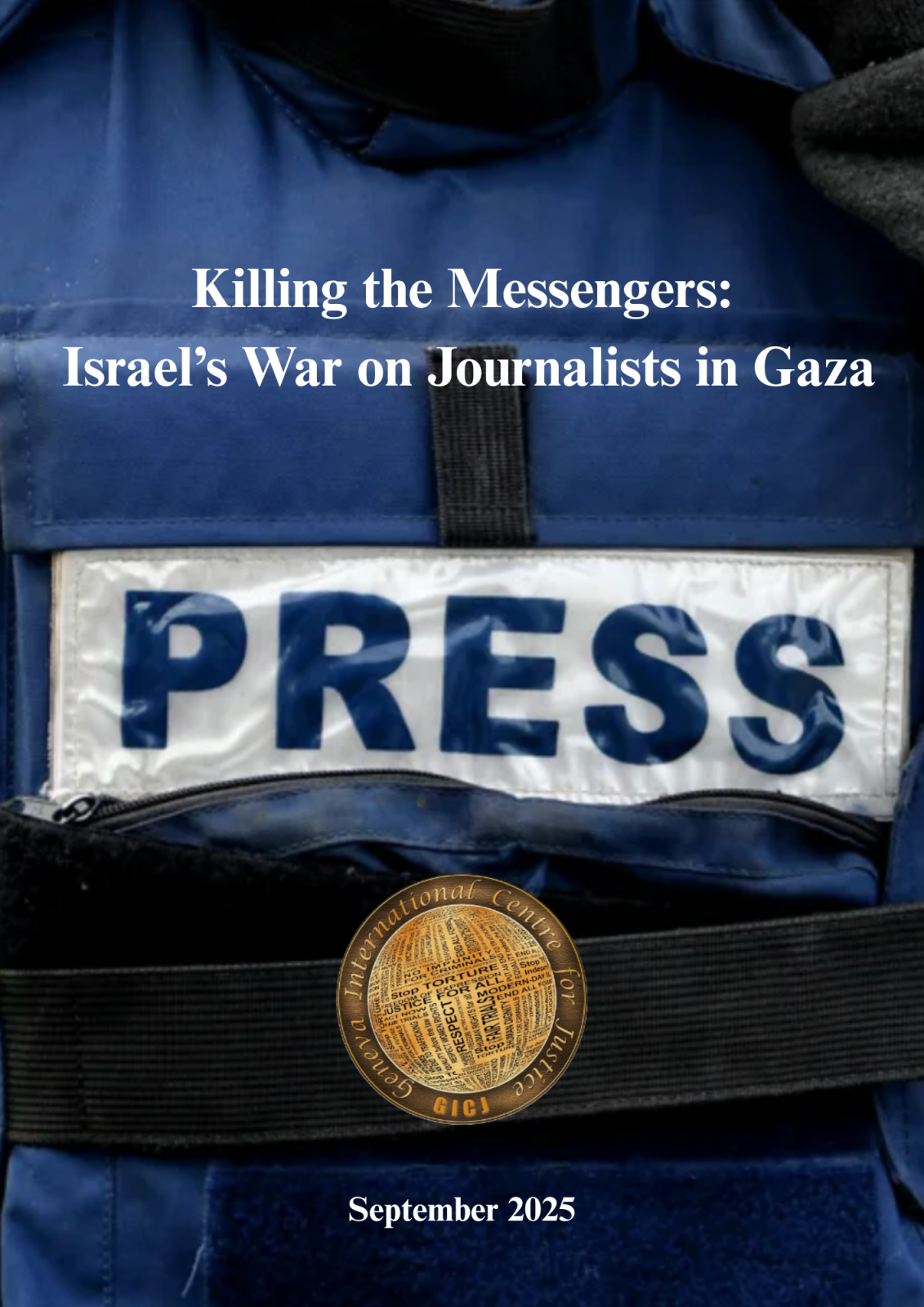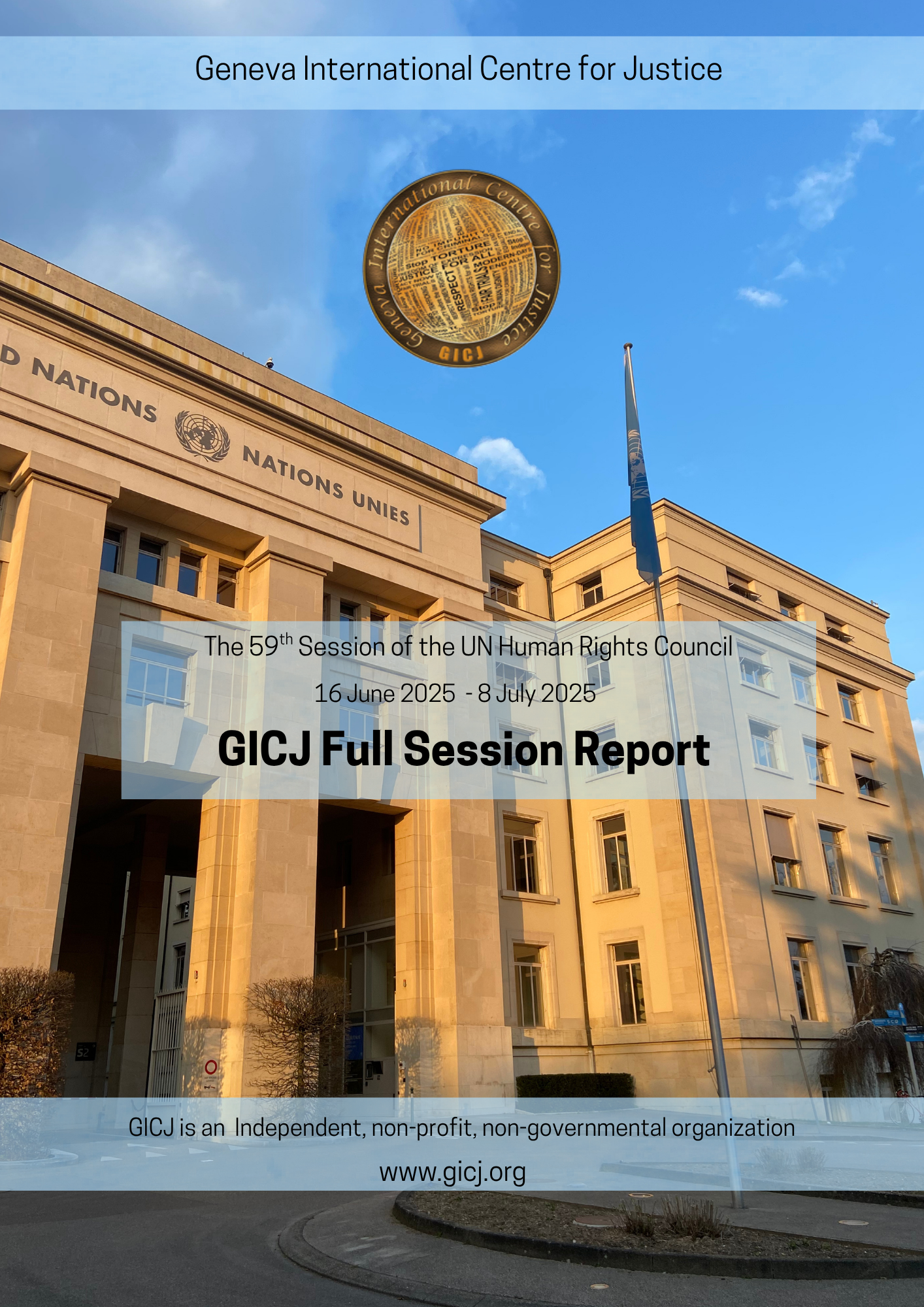29 November 2019
By:
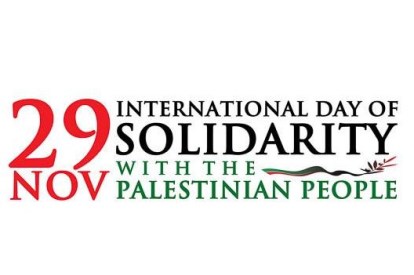
29 November was established as the International day of Solidarity with the Palestinian People by the United Nations (UN) General Assembly Resolution 32/40 B[1] of 2 December 1977, on the “Question of Palestine”.
Why 29 November? 29 November marks a dark day for Palestinians as, in 1947 the UN adopted Resolution 181 (II)[2] which set up the partition between the “Arab State” and the “Jewish State”, and the special regime for the city of Jerusalem. This resolution entitled Israel to 56% of the land of Palestine.
This date marked the beginning of the struggle for the Palestine people, and of increasing violations of their right to self-determination and other rights guaranteed by the Universal Declaration of Human Rights, the International Covenant on Civil and Political Rights and the International Covenant on Economic, Social and Cultural Rights.
In 2015, then-Secretary-General Ban Ki Moon commemorated this international day by saying that "Today, 136 countries recognize the State of Palestine and its flag flies at the United Nations next to those of all Member States. However, these advances are not felt by children in Gaza, or by the residents of Nablus, Hebron and East Jerusalem. ... let us reaffirm our commitment to bring about the just peace that the peoples of Israel and Palestine deserve."[3]
However, 2019 has not seen loyalty to this commitment as several States decided to move their embassies in Israel to the city of Jerusalem, thus endorsing the Israeli occupation, and as the US declared that Israeli settlements in the Palestinian Occupied Territories (OPT) are not considered illegal under international law.
International day at the UN
The UN usually organises special events around the 29 November to mark this day. On 27 November 2019, the UN held events in New York, Geneva, Vienna and Nairobi. On this same day, the UN Committee on the Exercise of the Inalienable Rights of the Palestinian People conducted a special meeting on Palestine, followed by the opening of the exhibit “Palestine – the most universal of national causes” at the New York Headquarters. Following this, the UN General Assembly will start its annual debate on the question of Palestine on 3 December 2019.[4]
Events in the OPT in 2019
Situation in the Gaza Strip
2019 marked a resurgence of violence, especially in the Gaza Strip. This article will deal with the Great March of Return and the rise of violence between 12 and 14 November.
Great March of Return
The Great March of Return (GMR) was initiated on 30 March 2018 to demand the end of the 12 years’ blockade of Gaza and the enforcement of UN Resolution 194 which states that Palestinian refugees have a right to return. The idea of organizing this march came from a Facebook post from Ahmed Abu Artema in which he was wondering about the idea of people being able to walk along the fence and break peacefully into the territory that is rightfully theirs. Demonstrations have been held every Friday since 30 March 2018.
A UN Commission of Inquiry (COI) has been established to investigate the demonstrations held in Gaza between 30 March and 31 December 2018, the response of Israeli forces to the protests and the impact on civilians in Gaza and Israel. This COI found that “that Israeli security forces used lethal force against children who did not pose an imminent threat of death or serious injury to its soldiers.”[5] Moreover, the COI found that, except in two incidents, “the use of live ammunition by Israeli security forces against demonstrators was unlawful.”[6]
In 2019, the GMR protests continued to take place, and fatalities on the Palestinian side increased each week. Recently, “95 Palestinian civilians, including 43 children, a woman, 2 paramedics and a journalist, were shot and injured by Israeli forces, who fired live rounds against peaceful Palestinian protesters at the 80th Great March of Return.”[7] According to PCHR, 214 Palestinians died and 14,453 have been injured since the first protest on 30 March 2018.
The protest that was supposed to take place on 16 November has been postponed due to an increased hostility between Gaza and Israel. This will be developed below.
12-14 November conflict between Gaza and Israel
The tension between Gaza and Israel escalated after the assassination of Bahaa Abu al-Ata, a commander of the Palestinian Islamic Jihad, by an Israeli air raid. The Palestinian Islamic Jihad is a Palestinian group operating in Gaza who has an “on-off alliance” with Hamas. During this attack, his wife was killed and two of his children were wounded.[8]
In two identical letters to the United Nations (UN) Secretary General and President of the Human Rights Council, the Permanent Representative of Israel to the UN claimed that “the operation was a defensive response to Baha Abu al-Ata planning additional attacks targeting southern Israel in the near future.”[9] The Palestinian Islamic Jihad is on the European Union’s (EU) and several other countries’ terrorist list.[10]
As a response to this attack, Gaza sent over 400 rockets to Israel in two days, and Israeli sent over a hundred; this has been condemned by the EU in a statement.[11] No fatalities have been reported on the Israeli side. In Gaza, however, 34 Palestinian we killed in Israeli bombing between 12 and 14 November. Despite an agreed ceasefire under Egyptian mediation, on the afternoon of 14 November and on the 16 November, rocked were fired from Gaza and have been met by new strikes from Israel. The Israeli attacks destroyed pieces of infrastructure but no injuries or casualties have been reported. It is worth noting that on the 16, Israeli forces targeted Hamas positions, and not Palestinian Islamic Jihad ones.[12] In this regard, the Israeli Defence Forces (IDF) stated that “The IDF holds the Hamas terror organization responsible for events transpiring in the Gaza Strip and emanating from it … Hamas will bear the consequences for actions against Israeli civilians.”[13] To protest against the violence against Gazans, Palestinians in Jerusalem organised a peaceful sit-in on 17 November, which has been met by an Israeli police attack.
The intentional community reacted strongly to these attacks, recalling that “There can be no justification for any attacks against civilians” and that “The UN is working to urgently de-escalate the situation.”[14] On 14 November, the Palestinian Minister of Foreign Affairs and Expatriates “called on the International Criminal Court (ICC) to hold Israel accountable for its latest attacks on the blockaded Gaza Strip.”[15] Moreover, NGOs as Al-Haq have issued articles on these event, “condemn(ing) practice of ‘targeted killings’ in Gaza, (and) call(ing) for an immediate investigation into deaths of Gazan civilians, including children.”[16]
Then, on 15 November, “Israel's military has pledged … to investigate the death of civilians in Gaza after attacks targeting the Islamic Jihad group killed 34 Palestinians.”[17] We look forwards to the result of these investigations.
A report from the World Health Organisation (WHO) explained that “These casualties have put extra strain on Gaza’s overstretched health system, which is suffering from chronic shortages of medical equipment and supplies and a lack of essential health services.” [18] Such shortage is the result of both the severe restrictions to the entry of dual-use goods imposed by Israel and by the high number of injuries from the protests for the Great March of Return.
Situation in the West Bank
One prominent issue in the West Bank is the forced demolitions and expulsions undertaken by Israeli forces; another one is the development of businesses in settlements, that benefit solely to Israel.
Demolitions and forces evictions
The UN repeatedly stated that forced evictions constitute gross human rights violations and may amount to forced displacement, which is condemned under international humanitarian law. Moreover, forced evictions lead to other human rights violations, including forced displacement and ethnic cleansing, and intensify inequalities between Palestinian people and settlers.
Nevertheless, Israel continues to expand its illegal settlements in the OPT. For example, Destruction Order 1797 (18 June 2018) authorises the demolition of any building in area C of the West Bank that is either not yet completed, has been completed less than six months earlier, or has been inhabited for less than 30 days. The demolition can be carried out within 96 hours of delivering demolition orders. This order facilitates the destruction of Palestinians’ homes that cannot be completed due to a lack of funding or authorisation from Israeli authorities, and the houses of Palestinians that have been displaced due to the conflict and are unable to return home.
The UN Special Committee to Investigate Israeli Practices recently stated that the continued threat of eviction of the Bedouin community in Khan al-Ahmar Abu al-Helu in area C of the West Bank amounts to forcible transfer under international humanitarian law.[19] The same has been stated by the UN Security Council regarding Israel’s policy of destroying properties in the West Bank, including East Jerusalem.[20] These international obligations and reminders do not seem to deter Israel from forcibly evicting Palestinians from their homes and expanding illegal settlements.
Especially in the context of East Jerusalem and the cities at the border of the two States, Israeli authorities use the pretext of illegal construction to destroy houses, while denying people the right to build new ones. In this way, room is created for the expansion of Israeli settlements, which are illegal under international law and condemned by the UN.
Despite this, authorities keep giving authorisations to build new settlements as in early August with the advancement of 2.400 new settlers homes. At this occasion, Special Rapporteurs reminded the international community of its duty to “stand by their collective promise to protect the rights of the Palestinian people, and to take decisive action to prevent Israel’s planned construction of a record number of housing units in its West Bank settlements.” In October 2019, Israeli authorities approved 2.000 new housing units in settlements and, on 4 November, seized 2.522 dunums (around 2.522.000 square meters) of land(?) for the purposes of further expanding settlements. In response to this increase, the European Union’s spokesperson recently called on Israel to “end all settlement activity, in line with its obligations as an occupying power.”[21] According to a recent UN report, demolitions have increased up to 50% in the West Bank since last year.[22]
Many Palestinians and, in some cases, entire neighbourhoods, have been affected by forced evictions and demolitions. From 1 July to 20 November 2019 only, at least 50 demolition cases have been reported. Forced evictions do not solely affect people’s right to adequate housing, but many other rights, including to water and sanitation, to health (considering that forced evictions are often violent), and to education. These evictions disproportionately affect vulnerable people, while no compensation or measures are provided to help people relocate.
Companies operating in Israeli settlements
Both Israeli and international companies work in the OPT to provide services to Israeli settlers and Israel. Given the prolonged occupation of the OPT, Israel has begun exploiting natural resources from the Palestinian soil for its benefit, including inter alia water, minerals, gas, and oil.[23] This deprives Palestinians of the goods and economic advantage they could obtain from exploiting these resources themselves.
The companies working in Palestinian lands to provide services only for Jewish people living in Israeli settlements located in the OPT discriminate against the rights of Palestinians, especially their right to work and prevents the realisation of their right to an adequate standard of living by not providing them with adequate and equal services.
On 12 November 2019, the Court of Justice of the European Union ruled that “foodstuffs originating in the territories occupied by the State of Israel must bear the indication of their territory of origin, accompanied, where those foodstuffs come from an Israeli settlement within that territory, by the indication of that provenance”.
This jugement has been made in Case C-363/18 Organisation juive européenne, Vignoble Psagot Ltd v Ministre de l’Économie et des Finances. The Court took the opportunity of this judgement to recall its longstanding position that the transfer of population, as can be observed in the Israeli settlements in the Occupied Palestinian Territories, violates “the rules of general international humanitarian law”. It further indicated that the consumers have the right to know if the goods they are buying come from “a locality or a set of localities constituting a settlement established in one of those territories in breach of the rules of international humanitarian law.”
Given the current backlash against companies working in Israeli settlements to provide services to Israelis, the judgement will allow consumers to make enlightened choices. It follows the path of Human Rights Council Resolution 31/36 (March 2018) which aimed to produce a database flagging companies doing business in Israeli settlements. We regret that despite numerous requests from Member States and NGOs, including GICJ, this database is still not available.
The illegality of Israeli settlements in the OPT
Ten days before this international day, on 19 November 2019, the US Secretary of State Mr. Pompeo declared that “The establishment of Israeli civilian settlements in the West Bank is not per se inconsistent with international law.” One of the points he raised in his speech to support this assertion was that “calling the establishment of civilian settlements inconsistent with international law hasn’t worked. It hasn’t advanced the cause of peace.”
First, Israeli settlements in the West Bank constitute illegal occupation and annexation of land; the transfer of population to an occupied country, as is the case of transferring Israeli citizens to settlements build on Palestinian lands, is prohibited under international and humanitarian law as stated in article 49 of the 1949 Fourth Geneva Convention. Moreover, under article 8.2.b of the 1998 International Criminal Court Statute “’war crimes’ means… serious violations of the laws and customs applicable in international armed conflict, within the established framework of international law, namely, any of the following acts: …The transfer, directly or indirectly, by the Occupying Power of parts of its own civilian population into the territory it occupies, or the deportation or transfer of all or parts of the population of the occupied territory within or outside this territory.”[24] Therefore, we would correct Mr. Pompeo’s sentence by saying that “The establishment of Israeli civilian settlements in the West Bank is … per se inconsistent with international law.”
This is the longstanding position of the European Union and the United Nations, that has been expressed through statements and resolutions – the latest one being Resolution 2334 of 2016 – and by the International Court of Justice’s advisory opinion on the Legal Consequences of the Construction of a Wall in the Occupied Palestinian Territory, which asserted that Israel must respect its obligation under international law and that other States have an obligation not to recognise the illegal situation resulting from the construction of a wall in the OPT. To consolidate and sustain this position, the European Union (EU) External Action chief Federica Mogherini issued a statement reaffirming the strong opinion of the EU regarding the illegality of the Israeli settlements in the OPT; and so did the spokesperson for the UN High Commissioner for Human Rights Rupert Colville. He said that “As part of the UN Secretariat, we continue to follow the longstanding position of the United Nations that the Israeli settlements are in breach of international law. A change in the policy position of one State does not modify existing international law, nor its interpretation by the International Court of Justice and the Security Council.”
Second, regarding the argument raised by Mr. Pompeo, if Israel had respected international law, the situation that exists now in the Occupied Palestinian Territories (OPT) would have been resolved long ago. We acknowledge that a peaceful and negotiated solution is the way forward, and this can only take place alongside with the respect of international, humanitarian and human rights law. Recognising that Israeli settlements in the OPT are illegal under international law is the first step towards the recognition of Palestinians’ rights and the recovery of their rights and lands.
Discrimination against Palestinians and Arab citizens of Israel
Discrimination is prevalent against Palestinians and Arab people, especially in social media, and has been codified in the 19 July 2018 Basic Law.
Hate speech online
Israeli political representatives used hate speech widely during the recent election campaigns. For example, the leader of the Blue and White party, Benny Gantz, who was running for Prime Minister at that time, published a video campaign boasting about the bombing of Gaza. In these videos, he showed images of Gaza after the 2014 war expressing pride in the fact that he sent parts of the Gaza Strip "back to the Stone Age". Worryingly, Mr. Gantz has now been entrusted with the formation of the new Israeli Government. In one statement from 9 April 2019 during the last Knesset elections, Prime Minister Netanyahu clearly stated that being Israeli means being a Jew.
Basic Law: Israel – the Nation State of the Jewish People
The Basic Law “Israel - the Nation State of the Jewish People” was adopted on 19 July 2018 and stipulates that the right to exercise national self-determination in Israel is “unique to the Jewish people”; establishes Hebrew as Israel’s official language, downgrading Arabic to a “special status”; and constitutionally elevates “Jewish settlement as a national value.”
Each of these points is worrying. First, all people have the right to self-determination according to the Charter of the United Nations. Second, the fact that Arabic is no longer considered an official language in Israel is contrary to the goal of including Arabs in the population, even though officials stated that this will lead to no changes regarding translation of official documents into Arabic. Finally, considering Jewish settlements as a national value while they are prohibited under international law clearly disregards Israel’s international obligations.
Moreover, the 2018 Basic Law states that Jerusalem, “complete and united, is the capital of Israel”; this wording is problematic as it highlights the will of the State to be in control of both parts of Jerusalem, while East Jerusalem is currently the capital of Palestine. The very act of describing Israel as a Jewish State, in every basic law and other documents, discriminates against minorities living in Israel and prevents their full integration.
Petitions have been filled against this Basic Law since 2018 but no ruling has yet been issued. On 18 November 2019 the High Court decided once again to postpone the hearing, this time at least until June 2020.[25]
GICJ position and recommendation
GICJ takes the opportunity of this international day to reiterate its solidarity with the Palestinian people and its dedication to the restoration of their rights. We condemn all the acts of violence, including the dreadful repression of the protests in the context of the Great March of Return, and the forced evictions and demolitions.
We call on all stakeholders to ensure that Jerusalem is not recognised as the capital of Israel and on relevant bodies to halt discrimination against Palestinians and provide adequate remedies. Finally, we call on the OHCHR to publish the database of companies operating in Israeli settlements and on the UN to take strong actions towards member States that fail to respect or to understand international law, especially with regard to the unlawfulness of the Israeli settlements in the OPT.
This article tackled events that happened in the OPT in 2019. To learn more about past violations on the OPT, please check out our previous articles commemorating this international day:
29 November 2018 https://www.gicj.org/positions-opinons/gicj-positions-and-opinions/1499-international-day-of-solidarity-with-the-palestinian-people,-29-november-2018
29 November 2017 https://www.gicj.org/gicj-reports/1294-international-day-of-solidarity-with-the-palestinian-people
29 November 2016 https://www.gicj.org/gicj-reports/514-gicj-report-on-the-occasion-of-the-international-day-of-solidarity-with-the-palestinian-people-29-november-2016
*Intro Image Source: UN
[1] UN General Assembly, Question of Palestine A/RES/32/40 (A+B), (2 December 1977). https://documents-dds-ny.un.org/doc/RESOLUTION/GEN/NR0/312/75/img/NR031275.pdf?OpenElement or https://unispal.un.org/DPA/DPR/unispal.nsf/0/2DA3D547118BFD25852560DD006BF4BB
[2] UN General Assembly, Boudaries A/RES/181(II), (29 November 1947). https://documents-dds-ny.un.org/doc/RESOLUTION/GEN/NR0/038/88/img/NR003888.pdf?OpenElement
[3] International Day of Solidarity with the Palestinian People, Geneva International Centre for Justice (29 November 2016), page 13. https://www.gicj.org/gicj-reports/514-gicj-report-on-the-occasion-of-the-international-day-of-solidarity-with-the-palestinian-people-29-november-2016
[4] International Day of Solidarity with the Palestinian People, United Nations. https://www.un.org/unispal/event/international-day-of-solidarity-with-the-palestinian-people/
[5] Report of the independent international commission of inquiry on the protests in the Occupied Palestinian Territory, (25 February 2019), para. 67.
[6] COI report para. 94.
[7] Ali Salam, PCHR Gaza: 95 Civilians Shot and Injured, Including 43 Children, at 80th Great March of Return, IMEMC (26 October 2019). https://imemc.org/article/pchr-gaza-95-civilians-shot-and-injured-including-43-children-at-80th-great-march-of-return/
[8] Who was slain Islamic Jihad commander Bahaa Abu al-Ata?, AlJazeera (12 November 2019). https://www.aljazeera.com/news/2019/11/islamic-jihad-commander-bahaa-abu-al-atta-191112111441690.html Man, wife killed in Israeli strike on the Gaza Strip, children injured, WAFA (12 November 2019). http://english.wafa.ps/page.aspx?id=BKtUXga114036189201aBKtUXg
[9] Permanent representative of Israel, Identical letters dated 12 November 2019 from the Permanent Representative of Israel to the United Nations addressed to the Secretary-General and the President of the Security Council (12 November 2019). https://www.un.org/unispal/document/letter-from-israel-to-the-secretary-general-and-security-council-president-on-rocket-fire-from-gaza/
[10] Council of the European Union, Council Decision (CFSP) 2019/25 of 8 January 2019 amending and updating the list of persons, groups and entities subject to Articles 2, 3 and 4 of Common Position 2001/931/CFSP on the application of specific measures to combat terrorism, and repealing Decision (CFSP) 2018/1084, Official Journal of the European Union (8 January 2019). https://eur-lex.europa.eu/legal-content/en/TXT/HTML/?uri=CELEX:32019D0025&from=EN
[11] European External Action Service, Statement by the Spokesperson on the security situation in Israel and Gaza (12 November 2019). https://eeas.europa.eu/headquarters/headquarters-homepage/70279/statement-spokesperson-security-situation-israel-and-gaza_en
[12] Israël mène de nouvelles frappes à Gaza, après des tirs de roquettes, Le Monde (16 November 2019). https://www.lemonde.fr/international/article/2019/11/16/israel-mene-de-nouvelles-frappes-a-gaza-apres-des-tirs-de-roquettes_6019396_3210.html
[13] Israel targets Hamas in fresh strikes on Gaza, The Guardian (16 November 2019). https://www.theguardian.com/world/2019/nov/16/israel-targets-hamas-in-fresh-strikes-on-gaza
[14] UN Special Coordinator for the Middle East Peace Process Nickolay Mladenov, Statement on the situation in Gaza and Israel (13 November 2019). https://www.un.org/unispal/document/statement-by-un-special-coordinator-mladenov-on-the-situation-in-gaza-and-israel/
[15] FM calls on ICC to hold Israel accountable for its attacks against Palestinians, WAFA (14 November 2019). http://english.wafa.ps/page.aspx?id=LbJMH9a114081873345aLbJMH9
[16] Al-Haq condemns practice of “targeted killings” in Gaza, calls for an immediate investigation into deaths of Gazan civilians, including children, Al-Haq (16 November 2019). http://www.alhaq.org/advocacy/16190.html
[17] Harry Fawcett, Israeli army to probe 'unexpected' Gaza civilian deaths, AlJazeera (16 November 2019). https://www.aljazeera.com/news/2019/11/israeli-army-probe-unexpected-gaza-civilian-deaths-191116095847797.html
[18] World Health Organisation, Special Situation update on the OPT, Gaza, 12-14 November 2019 (14 November 2019). https://www.un.org/unispal/document/who-situation-report-opt-gaza-12-14-november-2019/
[19] End-of-mission statement of the UN Special Committee to Investigate Israeli Practices 24 June 2019. https://www.ohchr.org/EN/NewsEvents/Pages/DisplayNews.aspx?NewsID=24729&LangID=E
[20] Rosemary A. Dicarlo, Under-Secretary-General for Political and Peacebuilding Affairs, “Briefing to the Security Council on the Situation in the Middle East”, 23 July 2019. https://unsco.unmissions.org/sites/default/files/security_council_briefing_-_23_july_2019_0.pdf
[21] https://eeas.europa.eu/headquarters/headquarters-homepage/69856/statement-spokesperson-latest-settlement-announcement-israeli-authorities_en
[22] UN Secretary General, Israeli settlements in the Occupied Palestinian Territory, including East Jerusalem, and the occupied Syrian Golan (A/74/357).
[23] Joint parallel report on Israel’s violations of the ICESCR, September 2019, Al-Haq and Al-Marsad, para.10. INT_CESCR_CSS_ISR_37011_E
[24] https://ihl-databases.icrc.org/customary-ihl/eng/docs/v1_rul_rule130
[25] https://www.jpost.com/Israel-News/High-Court-drops-the-ball-on-Jewish-Nation-State-law-analysis-608296
Keywords: Palestine, OPT, 29 November, International day of Solidarity with the Palestinian People, United Nations General Assembly Resolution 32/40 B, Gaza Strip, Israeli settlement, Justice, Geneva, Human Rights, Geneva4Justice.
Justice, Human rights, Geneva, geneva4justice, GICJ, Geneva International Centre For Justice




